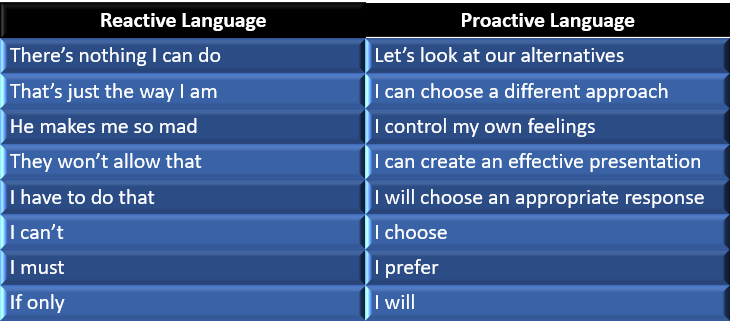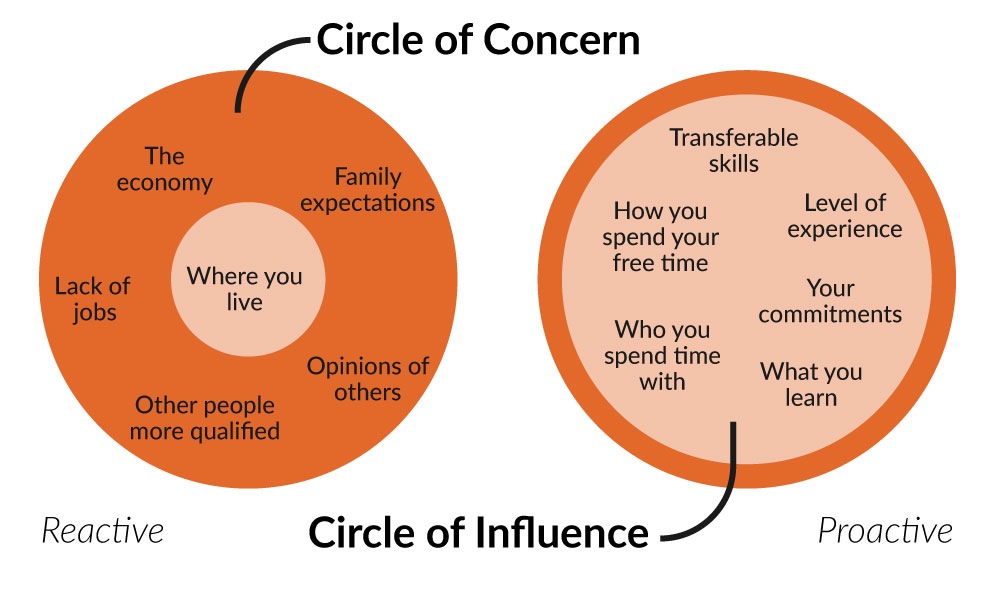
Self-Reflection – Energy
It is evident from the above that the most successful leader knows that it is not what happens to one in life that is important over the long term, but how one reacts to that which happens.
Do you feel the world is treating you well? If your attitude toward the world is excellent, you will receive excellent results. If you feel so-so about the world, your response to that world will be average. Feel badly about your world and you will seem to have only negative feedback from life. John Maxwell.
For some, attitude presents a difficulty in every opportunity, for others, it presents an opportunity in every difficulty. Some climb with a positive attitude, while others fall with a negative perspective. The very fact that the attitude “makes some” while “breaking others” is significant enough for us to explore its importance.
Once you have made the choice to change your attitude, you are ready to allow the opportunities around you to make this decision a success.
While the word “proactivity” is now common in management literature, it is a word you won’t find in most dictionaries. It means more than merely taking initiative. It means that as human beings, we are responsible for our own lives. Our behaviour is a function of our decision, not our conditions. We can subordinate feelings to values. We have the initiative and the responsibility to make things happen.
Look at the word responsibility “response-ability” the ability to choose your response. Highly proactive people recognise that responsibility. They do not blame circumstances, conditions or conditioning for their behaviour. Their behaviour is a product of their own conscious choice, based on values, rather than a product of their conditions, based on feelings.
Because we are by nature, proactive, if our lives are a function of conditioning and conditions, it is because we have, by the conscious decision or by default, chosen to empower those things to control us. In making such a choice, we become reactive. Reactive people are often affected by their physical environment. If the weather is good, they feel good. If it is not, it affects their attitude and their performance. Proactive people can carry their own weather with them. Whether it rains or shines makes no difference to them. They are value-driven and if their value is to produce good quality work, it is not a function of whether the weather is conducive to it or not.
Reactive people are also affected by their social environment, by the “social weather”. When people treat them well, they feel well when people don’t, they become defensive or protective. Reactive people build their emotional lives around the behaviour of others, empowering the weaknesses of other people to control them.
The ability to subordinate an impulse to a value is the essence of the proactive person. Reactive people are driven by feelings, circumstances, conditions, by their environment. Proactive people are driven by values, carefully thought about, selected and internalised.
Proactive people are still influenced by external stimuli, whether physical, social or psychological. However, their response to the stimuli, conscious or unconscious, is a value-based choice or response. As Eleanor Roosevelt observed, “No one can hurt you without your consent.”

Click here to view a video by Jefferson Santos on the secret of being proactive.
It is not what happens to us, but our response to what happens to us that hurts us. Of course, things can hurt us physically or economically and can cause sorrow. But our character, our basic identity, does not have to be hurt at all. In fact, our most difficult experiences become the crucible that forges our character and develops the internal powers, the freedom to handle difficult circumstances in the future and to inspire others to do so as well.
Our basic nature is to act and not to be acted upon. As well as enabling us to choose our response to circumstances, this empowers us to create circumstances. Taking initiative does not mean being pushy, obnoxious or aggressive. It does mean recognising our responsibility to make things happen.
Many people wait for something to happen or for someone to take care of them. People who end up with good jobs are the proactive ones who are solutions to problems, not problems themselves, who seize the initiative to do whatever is necessary, consistent with correct principles, to get the job done.
Listening to Your Language
Using proactive language: Our language is a very real indicator of the degree to which we see ourselves as proactive people.
The language of reactive people absolves or frees them of responsibility. “That’s me, that’s just the way I am…”, “He makes me so mad…”, etc.
A serious problem with reactive language is that it becomes a self-fulfilling prophecy. People become reinforced in the paradigm that they are determined, and they produce evidence to support that belief. They increasingly feel victimized and out of control, not in charge of their life or their destiny. They blame outside forces for their own situation. Proactive people know that the elements of determinism (traits inherited, upbringing and the environment) may at times influence us, but do not determine us. We are still free to choose our behaviour and attitudes.
To be proactive is to take control of your own life, and not blame anybody or anything for your behaviour or attitudes.

Circle of Concern vs Circle of Influence
Click here to view a video on the Circle of Influence vs Circle of Control.
Another excellent way to become more self-aware regarding your own degree of proactivity is to look at where we focus our time and energy.
The Circle of Concern is defined as all matters about which one cares.
The Circle of Influence is defined as all those things that one can affect directly.
We can divide all our concerns into these two ‘groups’; those over which we have no real control (circle of concern) and those that we can do something about (circle of influence).

Proactive people focus their efforts on the Circle of Influence. They work on the things they can do something about. By working productively within their circle of influence, it widens to take in more of their circle of concern. As they work within their circle of influence, their trustworthiness increases and others’ confidence in their character and ability grows. As their confidence increases, their circle of influence will also increase.
Reactive people focus their efforts on the circle of concern; the weaknesses of other people, the problems in the environment, and the circumstances over which they have no control. Their focus results in blaming and accusing. The negative energy generated by that focus, combined with the neglect of areas they could do something about, cause their circle of influence to shrink.
One way to determine which circle our concern is in is to distinguish between the haves and the be’s. The circle of concern is filled with the haves:
- "I’ll be happy when I have my house paid off.”
- “If only I have a boss who wasn’t such a dictator…”
- “If only I had a more patient husband.”
The circle of influence is filled with the be’s; I can be more patient, wise, be loving. It’s the character focus.
Anytime we think the problem is “out there”, that thought is the problem. We empower what is out there to control us. The changing paradigm is “outside in” what’s out there has no chance before we can change. The proactive approach is to change from the inside out, to be different and by being different, to effect positive change in what’s out there, I can be more resourceful, I can be more diligent, I can be more creative, I can be more cooperative.